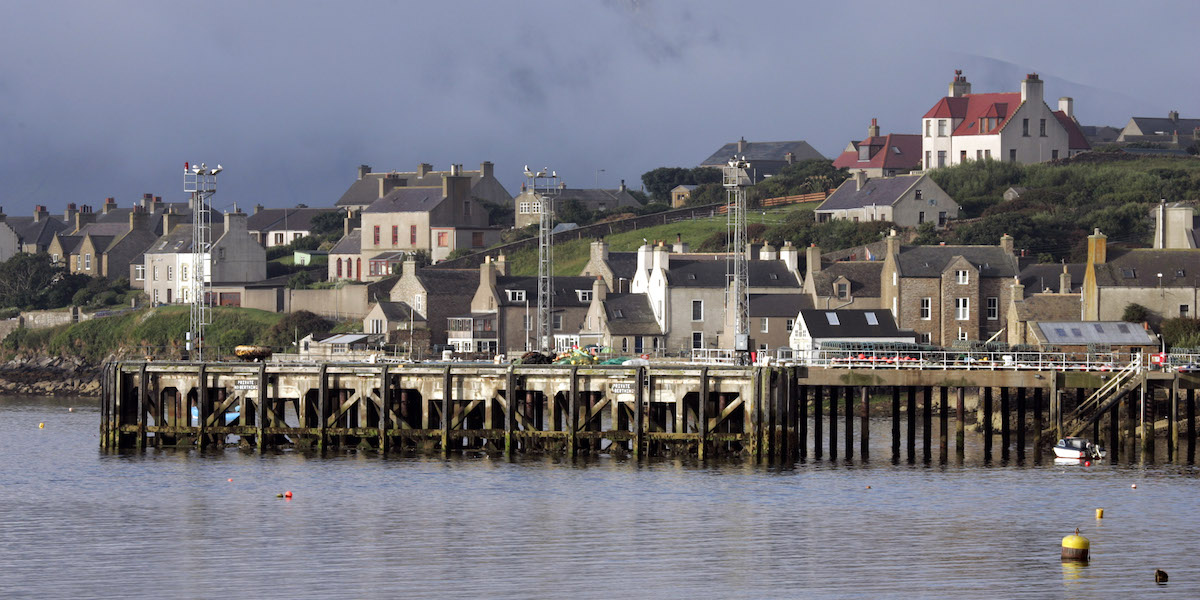Next Tuesday in the Orkney Islands, an archipelago in the far north of Scotland best known for its natural landscapes, the local government will start arguing a motion to evaluate “alternative forms of government”: that is, in other words, to decide whether to ask for greater autonomy from the United Kingdom or, as a last resort, to evaluate whether to join Norway, a few hundred kilometers away.
The motion has an exploratory value: it will not serve to concretely decide something, or to ask for some form of autonomy or independence from the British central government, but rather to study models of places that are governed with a greater degree of autonomy, while maintaining links with a certain state, in order to possibly make them their own in the future.
There are several options that the motion will consider: James Stockan, the leader of the Council of the Orkney Islands, the local authority of the archipelago, spoke of the Faroe Islands, an autonomous archipelago which is part of the kingdom of Denmark and which has prime minister, but also of British Crown Dependenciesthe self-government of places such as the Channel Islands and the Isle of Man.
In this case we are talking about territories which are not part of the United Kingdom but which are not even sovereign states, and of which the United Kingdom is considered «responsible» in some areas, such as defense and international relations, and more generally on the conduct of their government. Indeed, the British Crown Dependencies have their own government, their own courts and are not even part of the Commonwealth, the political organization made up of 56 sovereign and independent states, formally “free and equal”, most of which were territories of what was the British Empire.
Another hypothesis is that Orkney takes on a more autonomous status and formally becomes part of states other than the United Kingdom, such as Norway, Iceland or Denmark.
The reasons why the Orkney Islands are considering gaining greater autonomy and perhaps even leaving the UK appear to be mainly economic. Stockan said the archipelago does not receive enough funding from either Scotland or the UK to meet all of its needs, despite the benefits it brings to both by managing the crude oil processing terminal which is in its territory.
As for Scotland, Stockan said that other territories that are part of it, such as the Shetland Islands or the Outer Hebrides, receive much more substantial funding per individual inhabitant to be able to manage their services: “we can’t go on like this”, he said. Stockan cited for example the need to renew a ferry fleet and the fact that unlike other territories Orkney does not receive the Road Equivalent Tariff (RET)a system of coverage of tariffs and expenses relating to transport enjoyed by some territories, including the Hebrides.
For some time now, there have been discussions about gaining greater political and administrative autonomy in Orkney: an assessment of this type was made, for example, in the 2017, in that case also taking into consideration full independence. However, the idea did not receive sufficient support.
Also for this reason, the Local Council probably speaks of the motion to be discussed soon with great caution: Stockan said that now the Council will evaluate “whether or not to support this motion and from there we will take the necessary time”, without making hasty decisions, “examining all the practical implications”.
The Orkney Islands have very deep ties to countries such as Denmark and Norway: before becoming part of Scotland in 1472, this archipelago had been under Norwegian and Danish control for a very long time. Orkney was used as security for Margaret of Denmark’s dowry when she married James III of Scotland, King James III, in 1469 (Scotland became a territory of the United Kingdom in 1707): following non-payment of the dowry promised to the king by the family of Margaret, in 1472 the Scottish Parliament decree the absorption of the County of Orkney into the Kingdom of Scotland.
Speaking of the forthcoming motion, Stockan said: “On the street, in Orkney, some people come to ask me when we will return the dowry, that is, when we will return to being part of Norway”.
